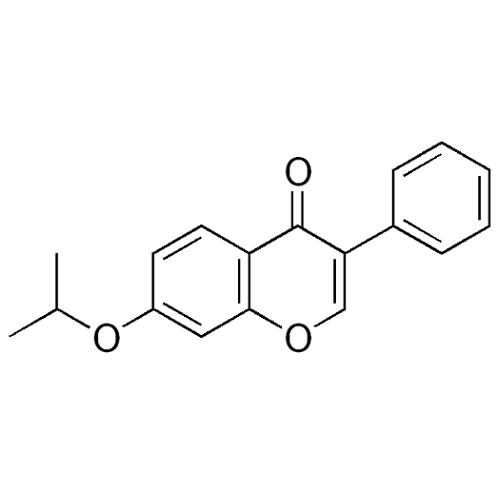
Background
Ipriflavone is used for weak and brittle bones (osteoporosis) and for a bone disease that causes pain (Paget disease). Ipriflavone is also used by bodybuilders, but there is no good scientific evidence to support this use.
Safety Safety definitions
Special Precautions & Warnings:
Pregnancy and breast-feeding: There isn't enough reliable information to know if ipriflavone is safe to use when pregnant or breast-feeding. Stay on the safe side and avoid use.Weak immune system: Ipriflavone can lower the body's white blood cell count, making it more difficult for the body to fight off infection. This is especially concerning in people who already have a weak immune system due to AIDS, drugs used to prevent organ rejection after transplant, chemotherapy, or other causes. If you have a weak immune system, check with your healthcare provider before starting ipriflavone.
Effectiveness
- Weak and brittle bones (osteoporosis). Taking ipriflavone with calcium daily can prevent bone loss in postmenopausal women with osteoporosis. There is some evidence that it might actually increase bone strength in some of these women, and it also seems to decrease pain from osteoporosis. Taking ipriflavone with estrogen also seems to prevent osteoporosis and increase bone strength in older women. Adding calcium might make this combination work even better.
- A bone disease that can cause pain (Paget disease). Early research shows that taking ipriflavone might decrease bone pain in some people with Paget disease.
- A bone disorder that occurs in people with kidney disease (renal osteodystrophy).
- Food allergies.
- Increasing metabolism in bodybuilders.
- Stroke.
- Other conditions.
Dosing & administration
BY MOUTH:
- For weak and brittle bones (osteoporosis): 200 mg of ipriflavone three times daily.
- For a bone disease that can cause pain (Paget disease): 600-1200 mg of ipriflavone daily.
Interactions with pharmaceuticals
Medications changed by the liver (Cytochrome P450 1A2 (CYP1A2) substrates)
Interaction Rating=Moderate Be cautious with this combination.
Some medications are changed and broken down by the liver. Ipriflavone might decrease how quickly the liver breaks down some medications. Taking ipriflavone along with some medications that are changed by the liver might increase the effects and side effects of some medications. Before taking ipriflavone, talk to your healthcare provider if you take any medications that are changed by the liver.
Some of these medications that are changed by the liver include clozapine (Clozaril), cyclobenzaprine (Flexeril), fluvoxamine (Luvox), haloperidol (Haldol), imipramine (Tofranil), mexiletine (Mexitil), olanzapine (Zyprexa), pentazocine (Talwin), propranolol (Inderal), tacrine (Cognex), theophylline, zileuton (Zyflo), zolmitriptan (Zomig), and others.
Medications changed by the liver (Cytochrome P450 2C9 (CYP2C9) substrates)
Interaction Rating=Moderate Be cautious with this combination.
Some medications are changed and broken down by the liver. Ipriflavone might decrease how quickly the liver breaks down some medications. Taking ipriflavone along with some medications that are broken down by the liver can increase the effects and side effects of some medications. Before taking ipriflavone, talk to your healthcare provider if you take any medications that are changed by the liver.
Some medications that are changed by the liver include amitriptyline (Elavil), diazepam (Valium), zileuton (Zyflo), celecoxib (Celebrex), diclofenac (Voltaren), fluvastatin (Lescol), glipizide (Glucotrol), ibuprofen (Advil, Motrin), irbesartan (Avapro), losartan (Cozaar), phenytoin (Dilantin), piroxicam (Feldene), tamoxifen (Nolvadex), tolbutamide (Tolinase), torsemide (Demadex), warfarin (Coumadin), and others.
Medications that decrease the immune system (Immunosuppressants)
Interaction Rating=Moderate Be cautious with this combination.
Ipriflavone might decrease the immune system. Taking ipriflavone along with other medications that decrease the immune system might decrease the immune system too much. Avoid taking ipriflavone with medications that decrease the immune system.
Some medications that decrease the immune system include azathioprine (Imuran), basiliximab (Simulect), cyclosporine (Neoral, Sandimmune), daclizumab (Zenapax), muromonab-CD3 (OKT3, Orthoclone OKT3), mycophenolate (CellCept), tacrolimus (FK506, Prograf), sirolimus (Rapamune), prednisone (Deltasone, Orasone), corticosteroids (glucocorticoids), and others.
Theophylline
Interaction Rating=Moderate Be cautious with this combination.
The body breaks down theophylline to get rid of it. Ipriflavone might decrease how quickly the body gets rid of theophylline. Taking ipriflavone along with theophylline might increase the effects and side effects of theophylline.


